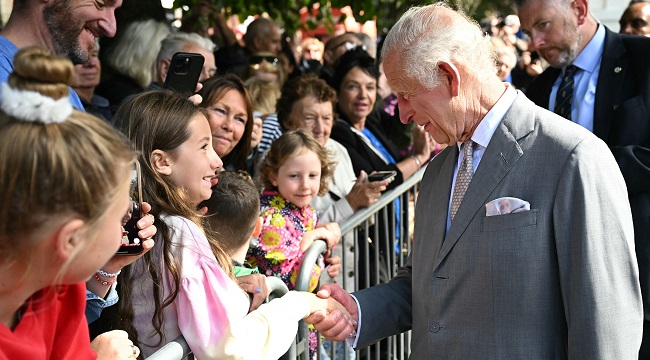King Charles III on Tuesday visited the town in northwest England where a devastating knife attack that killed three young girls sparked nationwide anti-immigration riots.
The 75-year-old monarch inspected a vast sea of floral tributes to the victims and will also meet children who survived the attack in the seaside town of Southport.
Buckingham Palace said he wanted to thank “frontline emergency staff for their ongoing work serving local people”.
Charles had earlier been criticised by some including historian Kate Williams for not issuing a public statement on the riots.
Although the monarch conveyed his condolences to the families of the three girls killed, he did not comment on the unrest until nearly two weeks later.
Traditionally, the monarch does not comment on anything that could cause political controversy.
But in calls with Prime Minister Keir Starmer and police chiefs, the king later said he had been “greatly encouraged” by the reaction “that countered the aggression and criminality from a few with the compassion and resilience of the many”.
Footage showed the king waving to people as he walked through the town centre.
He was later set to meet regional leaders, representatives from the emergency services and others.
They will include local groups and faith leaders impacted by the violent disorder which hit Southport the day after the July 29 mass stabbing.
Charles was also due to meet privately with some of those caught up in the knife attack, which claimed the lives of three young girls, aged six, seven and nine, and injured 10 others, eight of them also children.
The meeting was to include some of the surviving children who were present at the community centre, as well as their families.
The children were attending a Taylor Swift-themed dance class when an assailant entered the building and began attacking them.
Axel Rudakubana, who was aged 17 at the time, has been charged with murder and attempted murder over the stabbing spree.
‘Shared values’
A motive for the atrocity has not been disclosed, but police have said it is not being treated as terrorism-related.
More than a dozen English towns and cities saw unrest and riots in the week that followed the events in Southport.
Officials have blamed far-right elements for helping to stir up the disorder, which targeted mosques and hotels housing asylum seekers as well as police officers and other properties.
The authorities have cited misinformation spread online that Rudakubana was a Muslim asylum seeker for fuelling the violence.
He was actually born in Britain to parents who hail from Rwanda, an overwhelmingly Christian country.
In the immediate aftermath of the July 29 tragedy, Charles and Queen Camilla conveyed their condolences to the families of three girls killed, but did not comment on the near-daily riots which followed for some time.
The king eventually praised British police and emergency services “for all they are doing to restore peace in those areas that have been affected by violent disorder”.
He hoped the “shared values of mutual respect and understanding will continue to strengthen and unite the nation”, a Buckingham Palace spokesperson had said.
It was also reported that he was receiving daily briefings about the national situation when the disorder was at its height.
The riots have led to more than a thousand arrests and hundreds of convictions, after Prime Minister Starmer vowed those who participated would be quickly called to account.
